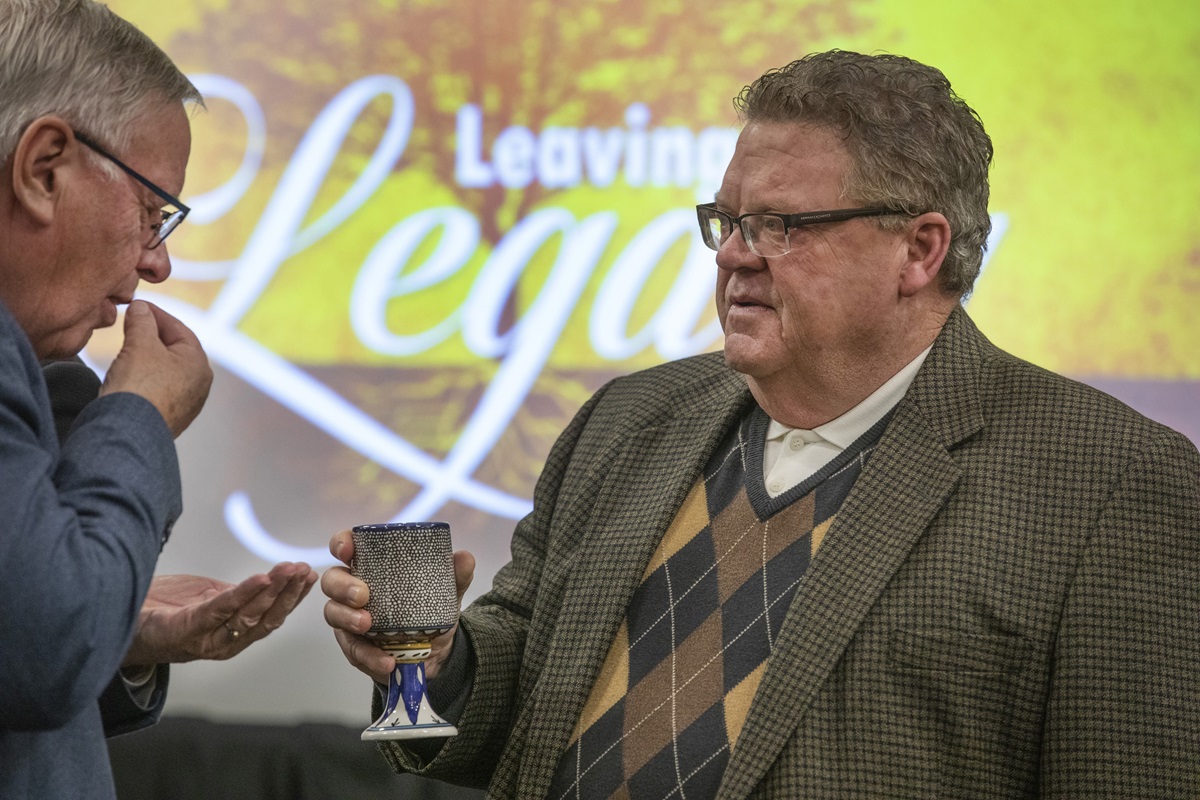The four active bishops in Europe have urged The United Methodist Church’s finance agency to reconsider planned cuts to their office support early next year.
The bishops also warned that the reductions could lead them to reassess their areas’ apportionments — requested giving from annual conferences and local churches.
“If you maintain the cuts, we will need to revisit what we submitted to you in June as expenses and apportionment income for 2020,” the bishops said in a letter to the General Council on Finance and Administration. The letter’s signers were Bishops Christian Alsted of the Nordic-Baltic Area, Eduard Khegay of Eurasia, Harald Rückert of Germany and Patrick Streiff of Central and Southern Europe.
Nevertheless, the agency’s board at its Nov. 14-15 meeting pressed ahead with an earlier decision to reduce office grants for all 66 active bishops by 50% during the first quarter of 2020.
The GCFA board members also responded with their own letter to the European bishops explaining the reasons for the cut and suggesting how the bishops might make up the shortfall.
“Any further funding necessary may be provided by the annual conferences in the episcopal area,” the board’s letter said. “This is a common practice in many of the (U.S.) jurisdictional episcopal areas.”
At heart, the dispute between the bishops and board is about how best to handle the denomination’s increasing financial strains.
Since this summer, the finance agency has been grappling with the problem that if current trends persist, the Episcopal Fund that supports the denomination’s bishops will run out of money by the end of 2024.
The Episcopal Fund has long faced financial stress and has been drawing on reserves in 2019.
Exacerbating the problem is a drop in apportionments since February’s special General Conference, which by a vote of 438-384 strengthened restrictions related to LGBTQ individuals.
Faced with rapidly depleting funds, the GCFA board made three decisions in July to mitigate the situation. The board voted to keep bishops’ salaries flat in 2020, to reduce their 2020 housing grants to the 2016 level and to reduce their office grants by 50 percent for the first quarter of 2020.
Bishops’ salaries vary by region, with U.S. bishops at the high end. In 2019, U.S. bishops each make $162,345. In Africa and the Philippines, the bishops each have a salary of $79,788. The European bishops’ salaries range from $61,824 in Germany to $127,491 in Central and Southern Europe, where the bishop’s office is based in Switzerland.
But it was the office expense cutback — not the hold on salaries — that alarmed European bishops. The office grants largely pay for the salaries and benefits of support staff as well as other office expenses.
“Our episcopal offices work in legal settings that are very different from the U.S.,” the bishops’ letter said. “Perhaps it may be possible in the U.S. to cut salaries of employees at short notice or even fire employees at short notice. In most European countries, this is not possible… .”
The bishops had another concern: That their areas’ faithfulness in paying more than the requested apportionments was going unrecognized.
“We would have expected that such drastic measures of cuts would only be applied to episcopal areas where their annual conferences do not fulfill a payment of apportionment at 100%,” the bishops’ letter.
The U.S. church pays for more 90% of general church ministries. But the 2016 General Conference established a set formula for central conferences — church regions in Africa, the Philippines and Europe — to support both the denomination’s Episcopal and General Administration funds. Since then, GCFA has been regularly reporting central conference giving.
For the past two years, the European conferences have paid nearly three times — 300% — what they were apportioned under the General Conference-approved formula.
Subscribe to our
e-newsletter
“Your commitment to the general church apportionments is greatly appreciated, and GCFA did discuss options that contemplated only reducing funding for those areas that did not pay 100%,” the GCFA board’s letter said in response to the bishops.
But the board added that it decided not to pursue this course on the advice of the Council of Bishops executive committee.
During its November meeting, the board approved the 2020 spending plan for the Episcopal Fund of about $23.9 million. That budget assumes a 75% apportionment collection rate from the U.S., and 60% collection rate from the central conferences. That estimate of 60% also presupposes that Europeans will continue contributing at their generous rate.
As of the end of September, European conferences had already paid nearly $466,000 in apportionments — about 220% of requested giving.
Still, that amount is down nearly 10% from where their apportionments were at the same time last year.
Per-Endre Bjørnevik of Norway is the sole European on the GCFA board and was copied on the bishops’ letter to the finance agency. He chairs the board’s committee on connectional outreach.
He told UM News he supported the board’s response.
“This is a situation that every bishop has to deal with,” Bjørnevik said. “We have to look at increased participation from annual conferences. We are not going to decrease our activity.”
Hahn is a multimedia news reporter for United Methodist News. Contact her at (615) 742-5470 or [email protected]. To read more United Methodist news, subscribe to the free Daily or Weekly Digests.
Like what you're reading? Support the ministry of UM News! Your support ensures the latest denominational news, dynamic stories and informative articles will continue to connect our global community. Make a tax-deductible donation at ResourceUMC.org/GiveUMCom.




